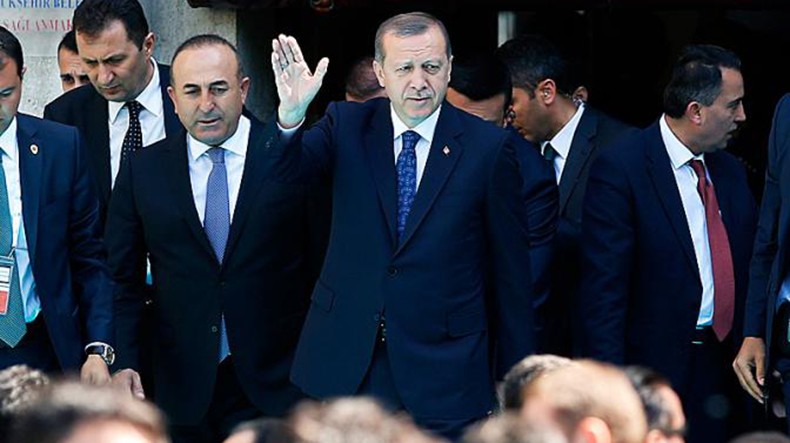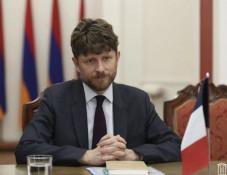
Foreign Policy: Here’s why Erdogan is cozying up to Putin
Turkey is trying to mend fences with Russia to contain Iran, fight the Islamic State, and improve its standing in an evolving Middle East, Keith Johnson writes in Foreign Policy.
“Turkey’s push to make nice with Russia, as it did this week with Israel, is part of Ankara’s drive to shore up as many friendships as it can throughout a region roiled by the Syrian civil war and the rise of Shiite Iran.
And, like Turkey’s reconciliation with Israel, better ties with Russia could jump-start stalled energy projects in Turkey, from a huge natural gas pipeline to a $20 billion nuclear power plant,” the author writes.
The author also states that Russian restrictions on trade and travel have hammered the Turkish economy, the energy projects have been iced, and the Turkish military has been effectively locked out of northern Syria, where the Islamic State still has a stronghold.
“This week, Turkish President Recep Tayyip Erdogan offered a written apology to Russian President Vladimir Putin for the jet incident, and two days later, Russia responded by rescinding its travel ban. That puts the two countries on a path to normalize relations, much as Turkey did this week after a six-year spat with Israel over the latter’s attack of relief flotilla headed for Gaza. Erdogan described the olive branches to both Israel and Russia as a “win-win” for all countries,” the article reads.
According to the author, the driving force behind Ankara’s diplomatic push is the disintegrating security situation in the eastern Mediterranean and wider Middle East and the need to assemble a stable of like-minded countries that could act as de facto partners in the fight against the militants operating throughout the region.
“And now, the Islamic State has become a much bigger priority for Turkey, after years of halfhearted efforts to combat the group. The terrorists have launched more than a dozen attacks in Turkey, most recently the triple suicide bombing this week at Istanbul’s main airport, which Turkish officials said was carried out by men from Russia, Uzbekistan, and Kyrgyzstan. The Islamic State has thousands of recruits from Russia and former Soviet states, and terrorism experts note the so-called “Uzbek battalion” is one of the group’s toughest,” the author writes.
According to the article, the question is whether warmer ties between Ankara and Moscow will be enough to resuscitate the huge energy deals that were the linchpin of the strategic partnership the two announced in late 2014.
Director of the Middle East–Caucasus Research Centre, Stanislav Tarasov notes that Turkey will not be able to build its relationship with Russia by the old principle, because its geopolitical background has changed.
“Erdogan has officially recognized the collapse of foreign policy implemented by former Foreign Minister, Ahmet Davutoglu. He came up with a new doctrine of Neo-Ottomanism, which in fact has practically driven Turkey into international isolation. It was revealed that the country has many enemies and no friends,” Mr. Tarasov said.
On whether or not to trust Erdogan, Tarasov said that Russia has centuries of experience with the Turkish diplomacy, which is often also called “Eastern diplomacy” and “artful diplomacy”. According to him, at this point Russia can now solve its tactical problems.
Dr. Anna Glazova, Director of the Middle East Department of Russian Institute of Strategic Research noted that Erdogan is fully aware of the collapse of his foreign policy.
In terms of terrorist threats, Dr. Glazova considers the situation in Turkey catastrophic.
“Turkish actions against Russia showed the real face of the country. Politicians shouldn’t be trusted. Relationships should be built on pragmatic and contractual basis. Considering the negotiations on construction of a nuclear power plant and the resumption of the “Turkish Stream”, I hope our government will not listen to the lobbyists of major energy companies, and will think about the feasibility of the project. Everything should be resolved pragmatically,” she added.
Newsfeed
Videos






























